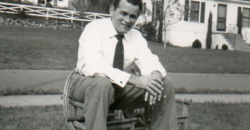autism is not a mental illness

My daughter, Tess, is so proud of being an Aspie. She came up with the idea (above) for a t-shirt and bumper sticker shortly after being diagnosed with Asperger’s this past June. That diagnosis explained so much to her. It gave her an identity besides “broken,” which is how she felt because that’s the feedback she got from others. It made her feel like she has superpowers, particularly since her hero, Einstein, is believed to have had Asperger’s. She fully embraced Aspie pride because we framed her Aspie-ness as a different way of thinking, which it is, not as a mental illness, which it is not.
Today I sent her to school in a world focused on a killer of children in Connecticut and awash in media reports linking his Asperger’s to his violence. But Autism isn’t a mental illness and the link to violence isn’t true. Does that matter, if that’s what everyone has heard? Does that matter if now Tess feels ashamed of being an Aspie? Does that matter if kids at school equate her with a killer? Today I had to explain to her that people are talking about the shooter having Asperger’s and that even if that is true, it does not explain what he did, and that it has absolutely nothing to do with her. It is hard enough to talk to a child about a mass killing at a school. It is even harder to talk to a child about the shooter being identified with her community and to assure her that doesn’t have anything to do with her.
Mental illness is something that both neurotypical people and people with Autism can have. But Autism isn’t a mental illness. And our propensity to look at violence and stereotype a whole group of people (whether people with Autism, people who are Muslim, any group–it seems–except white people who enjoy the privilege of their dominant culture) disturbs me.
I am displeased with the media for their demonization of Asperger’s in their frenzied writing about the killer. I am in pain at the very idea that Tess will take on this additional burden simply because we stereotype to fill up the vacuum of not knowing. People with Asperger’s don’t need this blow to their self-esteem.
I worry about Tess, not that she will grow up to be a mass murderer, thank you very much Media Frenzy, but that she will absorb the messages that society is telling her about herself and doubt her superpowers, her extraordinary way of being in the world; that she will wonder if she sees herself in violent people who might have Asperger’s. It is hard enough to feel friendless and alone and broken. It is hard enough to respond to sensory input in ways you can’t control. It is hard enough to be on a first name basis with a psychiatrist when you’re in the fourth grade. It is hard enough to be nine years old and have to tell your teacher you believe you have depression. It is hard enough.







